“The Deepest Darkest Magic We Have”: A Conversation On Disability, Employment and Expectations
Posted on May 4, 2022
Beliefs, Child, disability, education, Health, International, marginalized, stigma, vulnerable
Last month I had the pleasure of interviewing disability justice advocate and Kupenda Board member, Jeff Gentry. For the past 15 years, Jeff has committed his life and career to increasing workforce engagement for people with disabilities. As part of this work, Jeff and his colleagues have equipped over 1,000 youth and adults with disabilities with secure employment. Much of what Jeff has learned in this field is applicable for people with disabilities around the world – including Kupenda’s young people in Kenya. We hope you’ll enjoy this summary of our conversation and the tips that follow regarding how to support access to employment for people with disabilities.
Jessica: Why is the right to work so important for people with disabilities?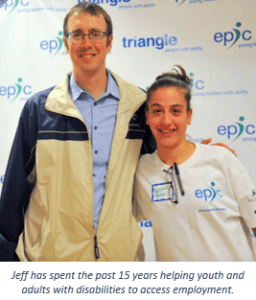
Jeff: I think it really kind of doesn’t matter where people start in paid employment. The important thing is that they do start working. Preferably before they finish high school. I think early work is valuable for all young people, not just people with disabilities. I’m a believer in early work because it’s not just about earning money.
Jessica: What else it is about?
Jeff: It’s a part of… kids’ education to work. [For example], my son… could get a job at Market Basket or some other job. That’s a part of him growing into adulthood. People with disabilities are left out of that often times so they don’t get the job, [even something] as simple as taking care of somebody’s dog while they’re [away].
Jessica: And why do you think that is?
Jeff: Expectations are the deepest darkest magic that we have, so we need to expect that people will work and will be successful regardless of what their skillsets are or how limited they might be.
So over 15 years [I’ve seen] a lot of people who have relatively minimal disabilities and a lot of skills and a lot of resource who are supported and pampered [but] there are very low expectations around them [so] they contribute very little.
You also see people who come from working class backgrounds, have significant disabilities, perhaps are illiterate and have intellectual disabilities but are trained to work and they have success… because that expectation is there and there’s a lot of opportunity in society.
Jessica: So is raising parents’ expectations about their children with disabilities also a part of your work?
Jeff: In an ideal world we would be educating parents. In the U.S. they did this research study on like 2,600 … young adults with disabilities… what they found is there are a lot of good things that we do, like self advocacy training, internships, volunteering… but the two practices that are strongly correlated with people working five years out from high school are parental expectations of work and paid employment before children exit high school… I think parental expectations is it’s a difference between 20% employment five years out and 42%. So like 42% of the people whose parents expected them to work are working.
Jessica: We often see the same thing in Kenya. Some parents, for example, don’t think a child with a missing limb can go to school, never mind work.
Jeff: Well you get what you expect, right? … With our young people [we communicate:] “We expect you to succeed, we expect you get a job, we expect you to show up”… and people… they rise to the level of your expectations a lot of times.
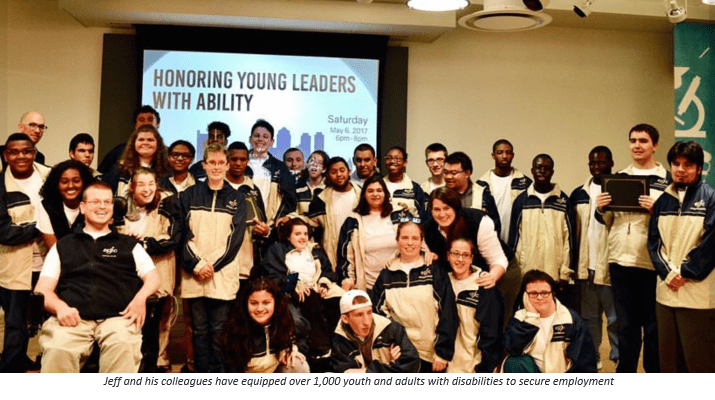
Jessica: So how do you raise the expectations of employers?
Jeff: Ask them what’s not getting done. Ask them… if the dishes were done in the kitchen and the buffet was tended, you know by people with less variety of skills… what could their staff do instead? We had a project when I was at Triangle with Malden Housing Authority — they couldn’t keep people at entry level custodial jobs. And they paid pretty well… like $18.50 an hour which is not too shabby… So they had a lot of people who had very diverse skillsets, like electricians… plumbers, painters… that were taking out trash, vacuuming hallways. So we [asked], ‘Well what would happen if we trained young people with disabilities… to pick up the trash and clean the laundry room. What could your [other] guys do?’ [and they said,] ‘Oh, well they could get on rebuilding Mrs. Smith’s cabinet, or whatever the case may be.’ That’s what we started doing. So it just created an entry way.
Jessica: So then did you use those success stories to convince other employers?
Jeff: I think a lot of it is giving them data on the percentages of successful employment outcomes and showing retention rates, like of 90 days or more… what data does is it lets people trust the story.
Jessica: How do you think this work could translate to a Kenyan context to help the young people Kupenda works with? 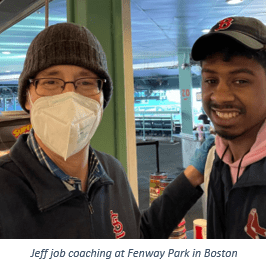
Jeff: I don’t understand [everything about] the environment [in Kenya] but people are people… I think a lot of it is… saying to families… ‘You think autism disables your child? Have low expectations of them, that would be a bigger disability than autism will ever be.’
Jessica: What inspired you to devote your life to this work?
Jeff: I believe in the power of work. I think we were made to work… we were made to create. And if we’re kept from that, our lives are infinitely poorer, there’s a poverty to it. One of my favorite authors, Jim Collins, says in his book Good to Great that it is “very hard to have a meaningful life without meaningful work.” That rings so true to me. A disability is not a reason for a person to miss out on the opportunity to earn money – and make a meaningful life – through work. A young person or adult with a disability may need to work differently, but we need to make sure that they have the opportunity to work and contribute just like the rest of us.
Want to support access to employment for people with disabilities? You can…
- Invite Jeff and Kupenda’s Executive Director, Cynthia Bauer, to make a presentation on inclusive employment practices at your workplace, church or community group!
- Make a donation to support Kupenda’s Disability Advocacy Trainings for Parents of Children with Disabilities
- Help a Kenyan child with a disability access education and employment for just $30 / month
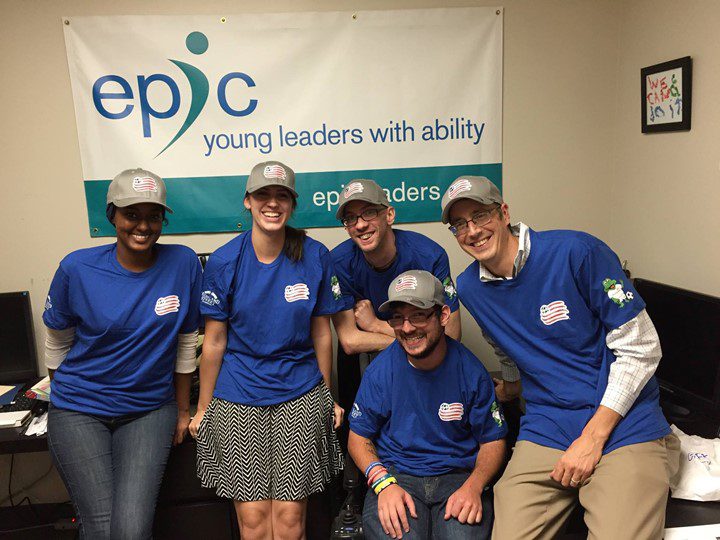
Want to keep updated on Kupenda’s work?
You can follow us on Facebook, Instagram, LinkedIn, and Twitter.
And please also sign up for our monthly newsletter and updates here.
If you’re interested in supporting one of the many children we serve, head over to our sponsorship page to learn about how you can make a difference for just $30 / month.
You can also help children with disabilities stay safe and healthy during COVID-19 by donating here.
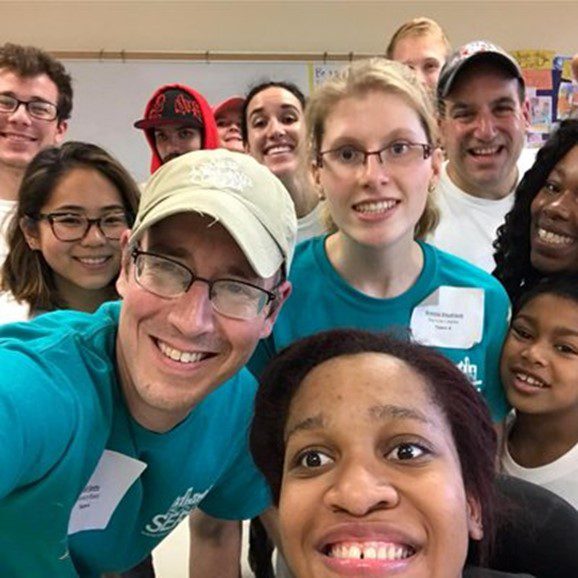



Leave a Reply